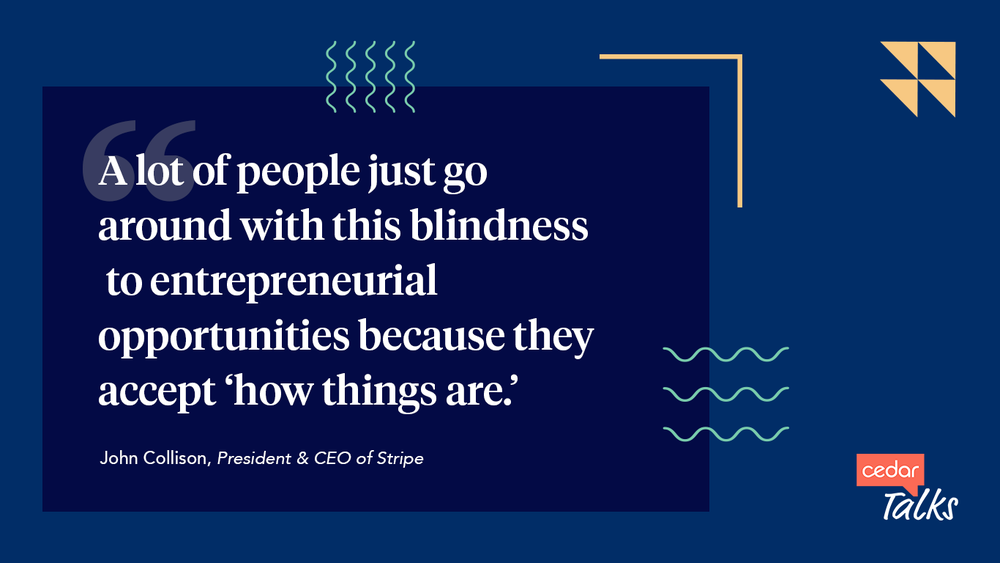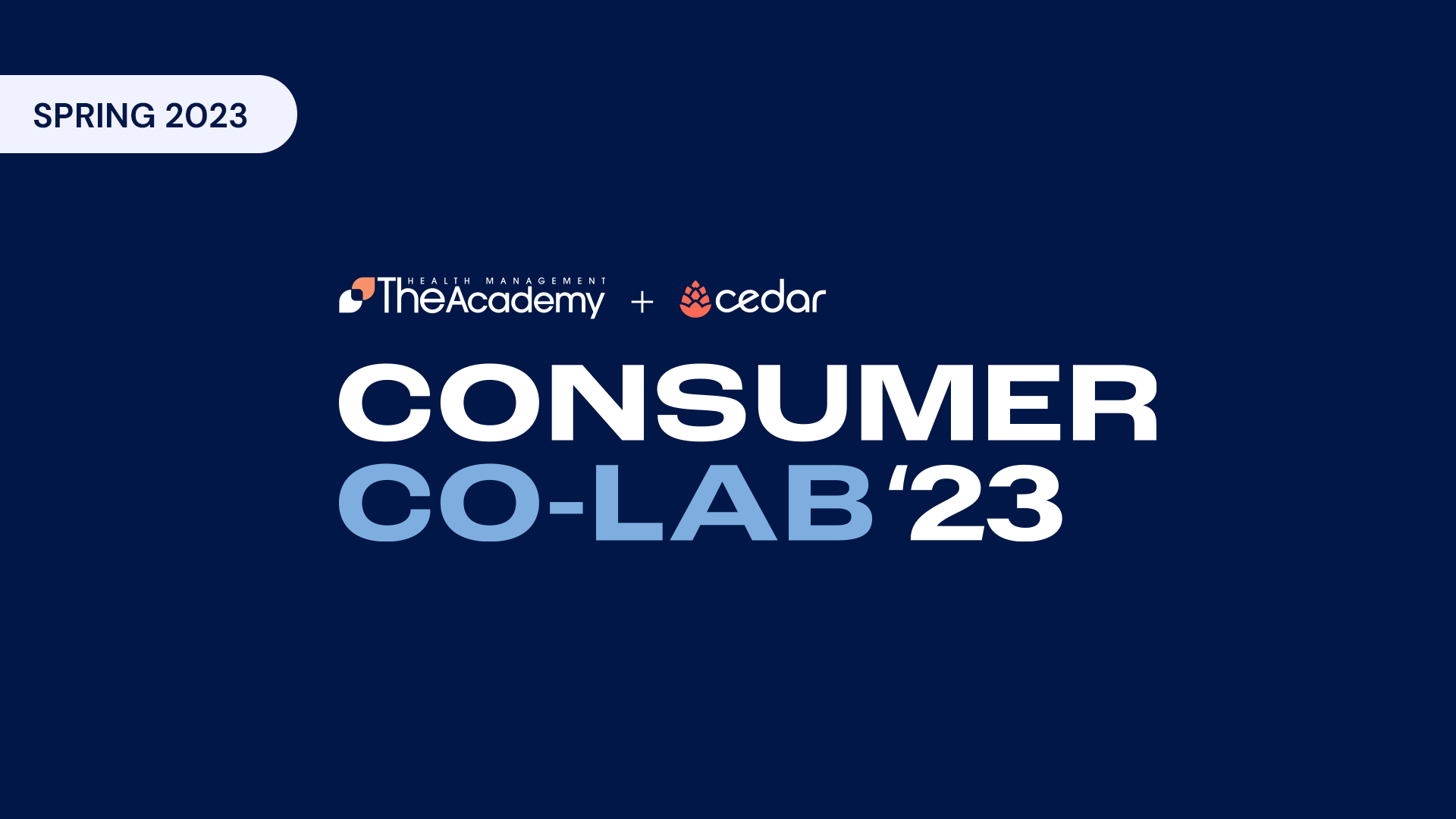Historically, the finance industry was resistant to change. John Collison wanted to change that.
In 2009, Collison co-founded Stripe, a digital payment processing software company, with his brother. Over the years, Stripe moved fast and grew even faster. Millions of websites use Stripe’s platform. As of 2021, the company has become one of the most revered fintech startups in the world. It’s currently valued at $95 billion.
In October, Collison joined Cedar Talks to discuss what he’s learned leading Stripe and how it can apply to healthcare. Like finance, the healthcare industry doesn’t always seem comfortable with change. But as digital experiences become more common, there are things healthcare leaders can do to innovate and build better experiences for consumers.
The 45-minute interview was a treasure trove of insight into startup culture, brand vision, entrepreneurship, and more. Here’s a recap of the biggest takeaways.
(To watch the full replay click here.)
Create an ‘accountability mechanism’
In Stripe’s early days, the company hit the ground running with a minimum viable product so they could bring in clients right away.
“I see a lot of early stage companies where there’s this idea, “Oh, we just have to do this one extra thing and then we’ll be successful—then we’ll be off to the races,” Collison said. “But they’re always pushing out the point of accountability—and that’s very dangerous.
Today’s healthtech companies can use this approach as a model. Instead of trying to perfect every aspect of a digital transformation, leaders can focus on digitizing the most important parts of the healthcare consumer experience to incrementally improve the patient journey.
Even though it took Stripe two years to officially launch, the company secured their first paying customer after just three months. That customer helped push Stripe to improve from the get-go.
“I think that’s really valuable because that’s accountability,” Collison said. “You’re looking at a revenue number and they’re emailing you with bug reports and complaints. Create that early accountability mechanism so you have targets.”
Find out how the Collison brothers created accountability mechanisms on the beaches and cafes of Buenos Aires in their early 20s at 8:20.
Develop the need for speed
For SaaS companies, speed and quality don’t have to be mutually exclusive. With the right tools and approach, healthcare leaders can roll out tweaks at lightning speed, tailored to key traits and consumer personas.
For Collison, this approach is a force multiplier:
“Stripe has a set of operating principles, and one of them is working fast. I think it’s important to be fast for multiple reasons. It’s a biomarker of healthy systems. If it’s not possible to develop software quicker, then the software probably isn’t that good because you don’t have good tests.
Secondly, from a talent and team point of view, no one wants to work at a big company where you’re spending all your time chasing down documentation or not being able to understand a system or in a frickin’ review meeting getting alignment … Working as part of a fast environment is much more enjoyable for the people actually doing the work.”
Find exactly why Collison says fast software development is good software development at 20:56.
Get comfortable with inconsistency
Moving fast also means excusing certain mistakes and inconsistencies. This idea shouldn’t apply to the clinical and legal aspects of healthcare—but it’s an extremely useful attitude for building world-class digital patient experiences.
“To make speed happen, the company has to be okay with some amount of inconsistency,” Collison said. “Large companies are consistency machines where the board wants to come along and say, ‘Oh, well, we’re going to put that through design review and legal review and review review.’ You just have to be okay with some amount of ‘startup culture’—moving fast even if it’s somewhat inconsistent with the rest of what the company is doing.”
Curious how Stripe cultivates comfort with inconsistency? Click here and navigate to 22:37.
Cedar Talks is a thought leadership series highlighting experienced entrepreneurs, tech innovators and healthcare leaders who are solving important problems by challenging the status quo. Recent Cedar Talks have included Farmgirl Flowers founder Christina Stembel, Zola Co-founder and CEO Shan-Lyn Ma, CareJourney President Aneesh Chopra and Affirm founder and CEO Max Levchin.



